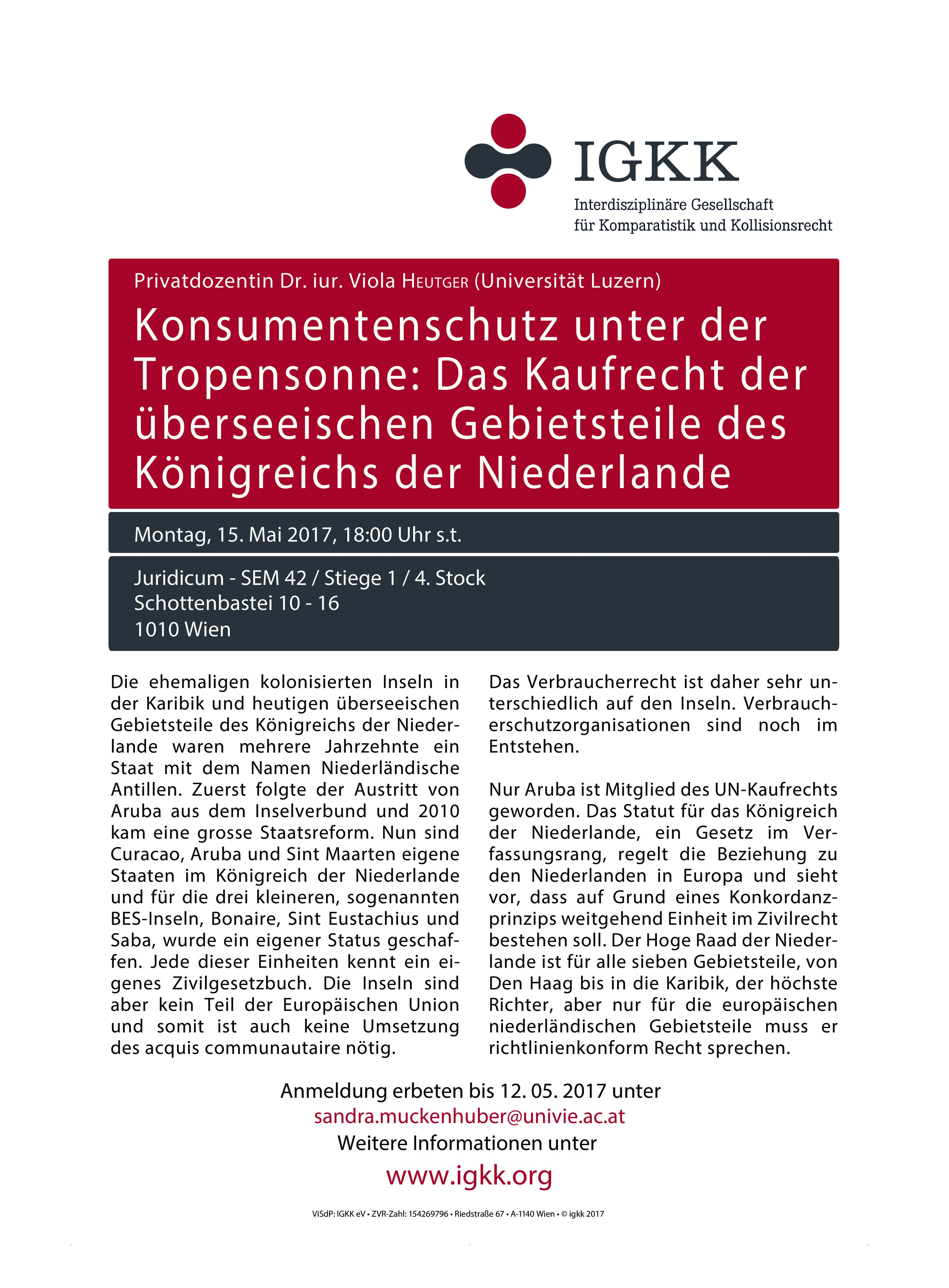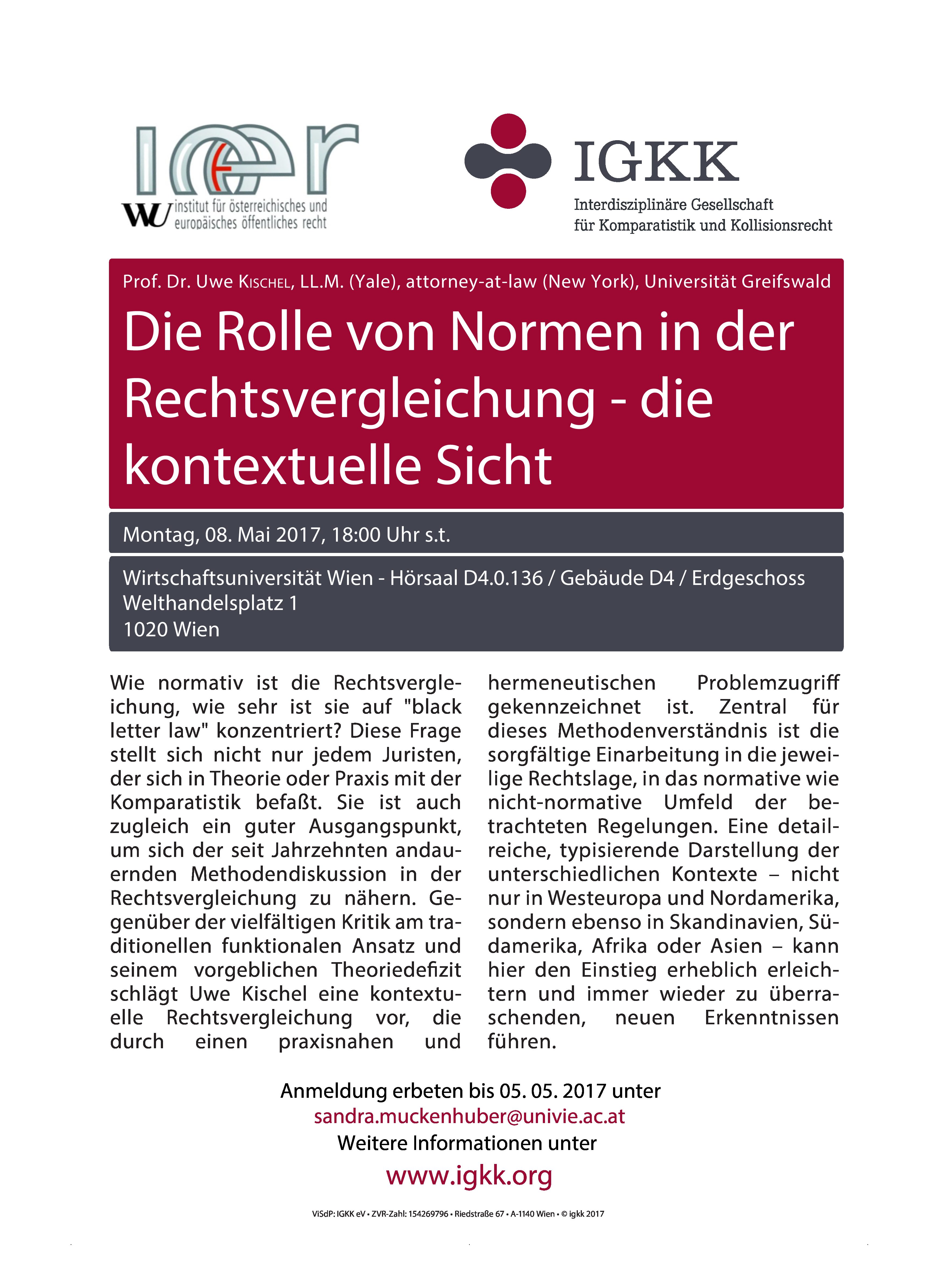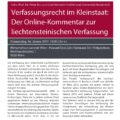Einladung zur Tagung Internationaler Kinderschutz
Einladung zur Tagung Internationaler Kinderschutz
Donnerstag, 17. Januar 2019
09:15-17:15 Uhr
Sigmund Freud Privatuniversität
Raum 317
Freudplatz 3
1020 Wien
Im Rahmen einer erstmaligen Zusammenarbeit zur wissenschaftliche Vertiefung der mit dem Internationalen Kinderschutz verbundenen Rechtsfragen laden die Österreichische Gesellschaft für Familien- und Vermögensrecht (ogfv) und die Interdisziplinäre Gesellschaft für Komparatistik und Kollisionsrecht (IGKK) zu einer Tagung am 17.1.2019 zu aktuellen Fragen des Kinderschutzes.
Mit der Anmeldung zur Veranstaltung erklären Sie sich einverstanden, dass Ihre Daten durch die ogfv zum Zweck der Organisation und Durchführung der Veranstaltung verarbeitet werden. Eine Weitergabe Ihrer Daten an Dritte erfolgt nicht.
Der Bogen spannt sich von der Umsetzung der EU-Grundrechtecharta über Fragen der Leihmutterschaft bis hin zur Problematik der Kindesentführung. Breiter Raum wird auch den immer brisanteren Rechtsfragen des Kinderschutzes im Zusammenhang mit den neuen Medien gewidmet. Alle genannten…



